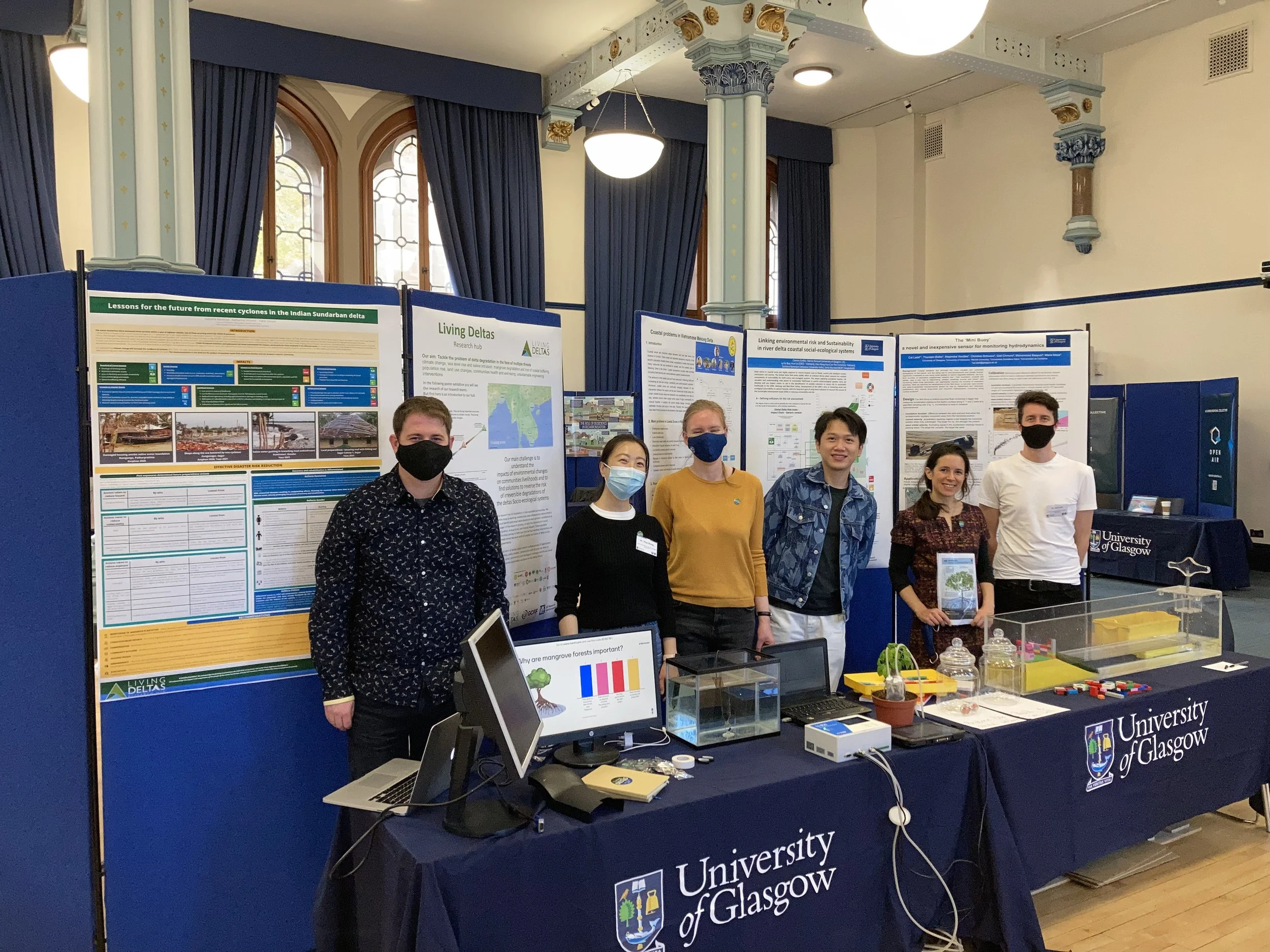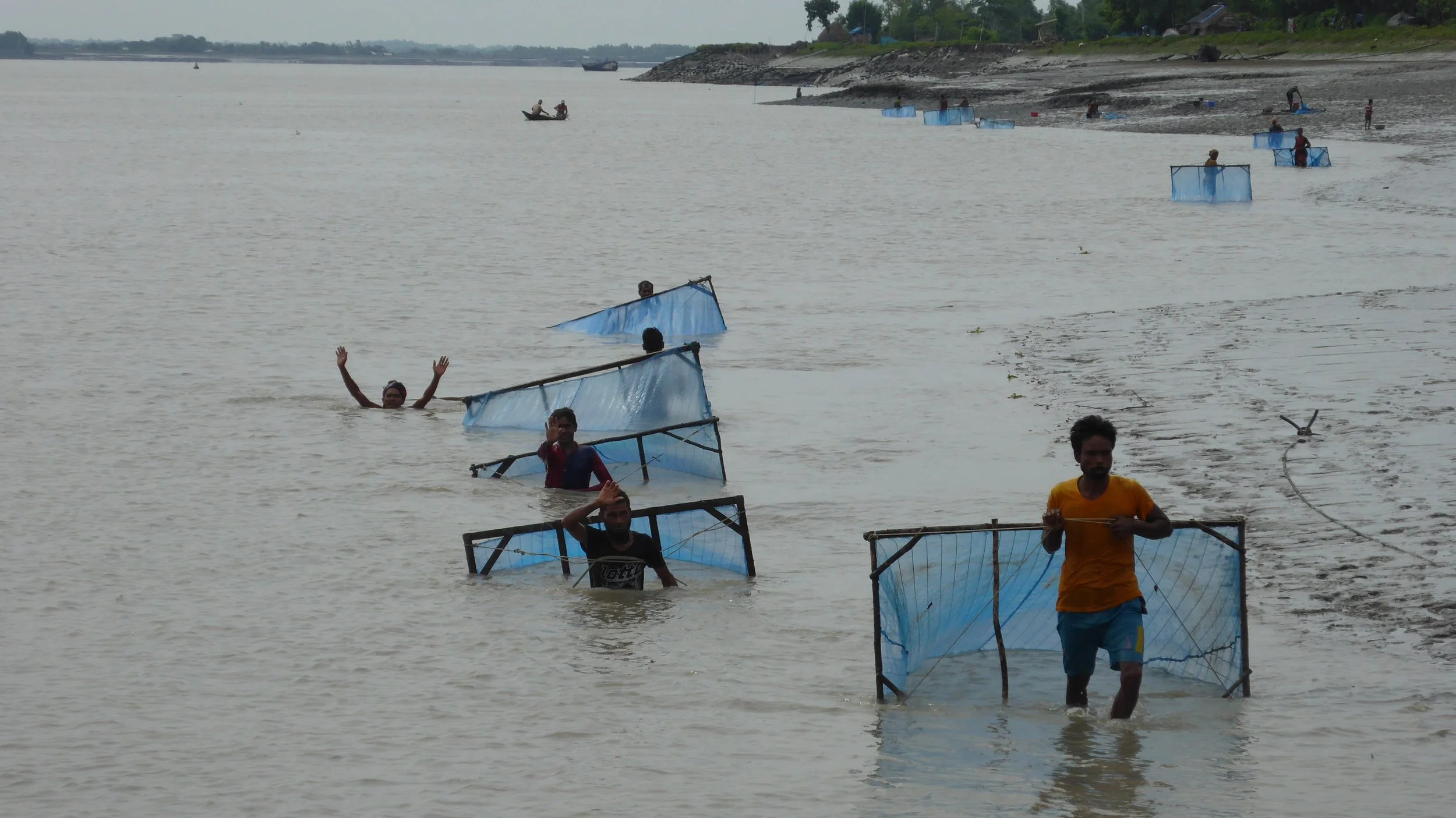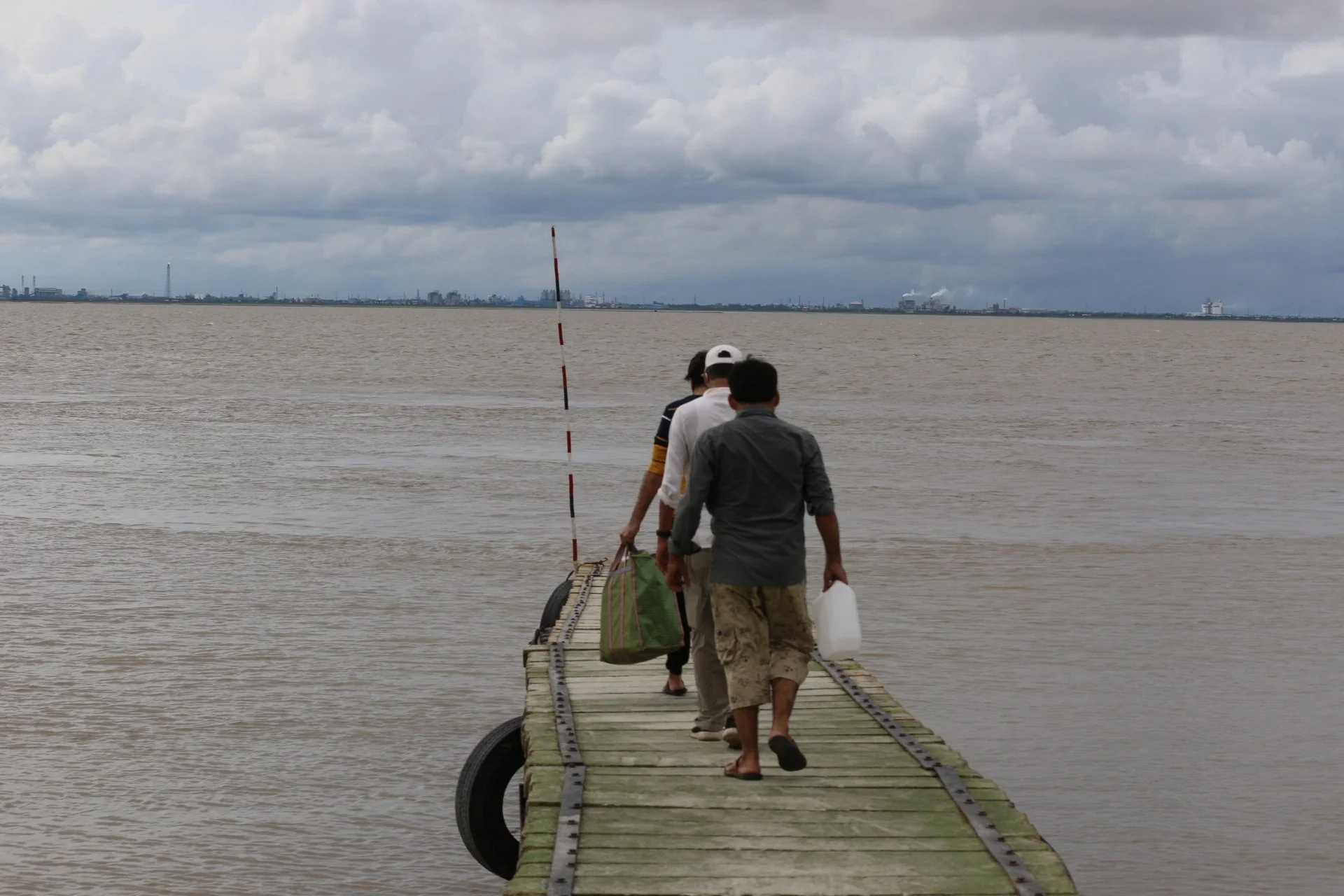WATER LOG
Coring the deltas – Lessons learned from 3 memorable field excursions in 2022
Blinking into the bright, Bangladeshi sunshine in February 2022 after a red-eye journey from the UK, it seemed hard to believe that my first fieldwork as part of the Living Deltas Hub was about to get underway. With fieldwork finally starting exactly two years from my start date, 2020-2021, after a pandemic and a major budget cut to the Hub making the prospect of going out on fieldwork seem increasingly unlikely. But here Andy Large, Andy Henderson, and I were. Eager to get underway, we set out to the lakes of southwest Bangladesh two days later.
Rice or Shrimp? Exploring current and future agro-ecological systems in Sóc Trăng province, Mekong River delta, Vietnam
In September 2022, a group from the Living Deltas Hub team met with officers from the Department of Agriculture of Sóc Trăng province, in the Mekong Delta. This meeting was part of our field trip during the Hub’s Annual Meeting, which was coordinated by Can Tho University. Part of the objectives of this day trip was to better understand the changes in cultivation practices that have been taking place in the Mekong delta provinces, which has been mainly dominated by different types of shrimp farming and rice cultivation.
Mangrove co-management in Sóc Trăng
During our field trip to Sóc Trăng during the Living Deltas Research Hub Annual Meeting, we met a team from the forest department and forest rangers (both male and female) who conduct mangrove forest surveillance of the Sóc Trăng Mangrove Forest Reserve in Vinh Chau. Located south of the Hậu River, the southernmost tributary of the Mekong River, Sóc Trăng is facing the impacts of environmental changes in the Mekong River basin.
From rice to rabbits: living with saline intrusion in Ben Tre
The Ben Tre area at the fringes of the Mekong Delta is at the forefront of climate change. At our recent Living Deltas Hub annual meeting, a team visited The Department of Agriculture and Rural Development (DARD) to find out more.
Oral history, mapping and photography in the Bangladesh Sundarbans
Colleagues from Hub partners BUET (Bangladesh) and Northumbria and Newcastle Universities (UK) have worked together to use oral history and a range of visual methods to explore and document older and younger women’s and men’s experiences of environmental change in the Bangladesh Sundarbans. This participatory intergenerational research combines the expertise and interests of two sub-groups in WP1: Oral history & Ageing; and Youth & Participatory Mapping. In this blog we will provide an overview of the research process and reflect on the use of the methods, which were new to many of the researchers involved.
Existential Crisis: Tales of Ghoramara Island dwellersin the Indian Sundarbans
After a hiatus when we resumed our field visit to the Sundarban delta after the COVID-19 restriction was lifted, it was surprising and painstaking to observe, how the Ghoramara island dwellers are facing the fury of the natural shocks amid COVID- 19. The accelerated erosion and rise in the sea level have been acting like a giant; devouring vast acres of land and displacing people from the island. Adaptation is inevitable for the survival of the island dwellers facing consistent sea-level rise and climate-induced hazards.
The Community Digital Storytelling and Delta Futures Project in Bangladesh
The Community Digital Storytelling and Delta Futures Project (CDST) supports indigenous communities in Asian megadeltas to tell their stories of climate crisis and environmental degradation.
Delta Futures: (In)Visibilities in Audiovisual Culture, an international hybrid conference and a forum to share experiences, projects, and strategies for action
Delta Futures took place both online and in person at Durham University on 24-25 March 2022. Exploring notions of visibility and ‘(in)visibility’ in a range of audiovisual practices and experiences, the conference attracted participants from 16 universities and 14 research centres and projects. Presenters from Bangladesh, India, Vietnam, the UK, EU, and US, engaged with urgent challenges and shared practices around the power of visuality and aurality (what can be seen and heard) to render discussions of invisibility, vulnerability, fragility and the empowerment of communities and networks more central to the Living Deltas Hub.
All delta stories begin with ‘Once upon a time’… but how do we define ‘time’?
Two years ago, the Living Deltas Hub was starting to ramp up its activity. Plans were made at Kolkata for a 2020 of busy field activity involving some 120 colleagues and a post-annual meeting trip took place to southwest Bangladesh to scope coastal sites. Then.. the world changed overnight. Through the entire period, the Hub never saw its ambitions to work for better delta futures dimmed so, there was a feeling of some relief and excitement when our small team from Newcastle University landed in Dhaka in late February 2022 on a long-overdue trip to collect sediment cores from a series of baors in and around Khulna and Jashore.
Mini Buoys in the Indian Sundarban: a story of challenges, collaboration, and commitment
Q: What did it take to successfully deploy and retrieve Mini Buoys along the Indian Sundarban?
A: 20 months, 26 zoom calls, 11 WhatsApp calls, countless WhatsApp texts, over 80 telephone calls, and around 15 people. . Eager to learn how we managed it? Read on.
In search of sediments: probing the past in Bangladeshi waters to help solve the problems of the here and now
Deltas are landscapes rich in water (rivers, lakes, wetlands) and sediments. Lake sediments from these regions can contain information on flooding frequency, ecological change, as well as other impacts on the environment and their accumulation over time can help us make sense of the past to inform the future about arising challenges
The Unheard Voices: Empowered Women's Story in Delta
Elegies of fearless women who do not give up
Every year, on 8th March, International Women's Day is being celebrated to highlight the achievements and contributions of women, to raise awareness about the necessity of gender parity and how we as a society can work together and strive for a better place where empowerment and equality pertains.
Shift in livelihood towards a silent social reform: Voices from the unheard - the Rishi Community of Bajua Union, Dacope, Khulna
Along with the millions of gallons of water flowing down the river Rupsha, a silent march towards getting social justice by changing occupations was also taking place for years across the “Rishi” community of the Bajua Union, located just beside the river.
Lifting heads up out of the sand
The humble grain of sand is perhaps the most important material in the development of human society. Without it, we would not have buildings, roads, glass or the silicon chip. However, our demand for this ubiquitous material is now outstripping supply, resulting in major environmental consequences particularly in our river and delta systems which rely on sand to support their millions of inhabitants
Cyclone Amphan in Bangladesh: An Overview
Cyclone Amphan, the first tropical cyclone of 2020 in North Indian Ocean Cyclone Season, was also the first super cyclonic storm to have formed in the Bay of Bengal since the 1999 Odisha cyclone. Early actions taken by the government, accurate advance forecasts and the evacuation of hundreds of thousands of people were the primary reason for keeping the death toll to a minimum.
COP26 side-event on “Coastal vulnerability and social-ecological adaptations”
As part of COP26 Living Deltas colleagues at the University of Glasgow held a Sustainable Solutions Showcase exhibition showcasing the cutting-edge research being done by the Living Deltas Hub in understanding and enhancing relationships between people and nature. Through interactive activities, they demonstrated why coastal landscapes are vital to society and climate.
Crowdsourcing Research Priorities for Better Delta Futures: Your chance to contribute!
Monday 8th November 2021 marks Adaptation Loss and Damage Day, set up by the COP26 Presidency to “highlight the need to adapt and also step up action on loss and damage resulting from extreme weather and slow onset events.”
Managing Cyclones in Bangladesh: A success story but no room for being complacent
Despite remarkable progress in reducing cyclone related deaths and injuries in Bangladesh, damages related to cyclones continue to put life and livelihoods of coastal communities at peril.
Youth Participatory Mapping
Participatory mapping with young people in An Giang province, Mekong delta, Vietnam. Children and young people are particularly susceptible to the impact of climate change. According to the World Health Organisation, children will suffer 80% of all illnesses, injuries and deaths occurring due to climate change, particularly in poorer and underserved regions of the world where climate change is already disrupting access to freshwater, sanitation, and food…
Resuming Fieldwork in the Indian Sundarban Delta
The team at Jadavpur University embarked on field visits to the Indian Sundarban Delta in late July and late August. The fieldwork encompassed travel through the breadth of the delta where we covered Sagar, Nakhana, Kakdwip, Patharpratima Community Development Blocks in the first phase during end of July and Basanti, Gosaba, Hingalganj in the second phases during end of August…




















